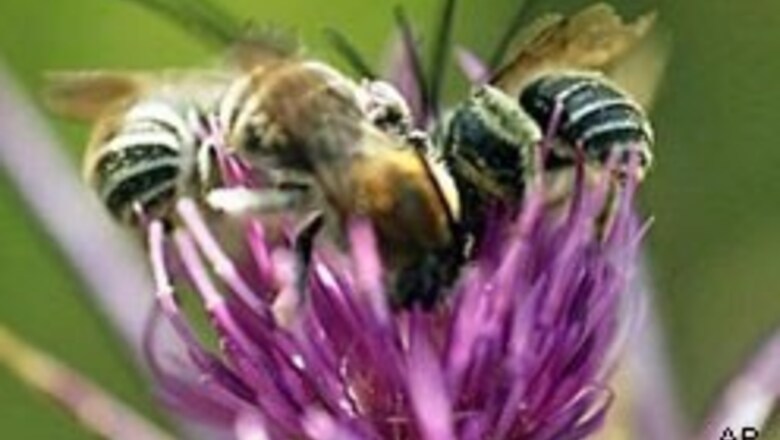
views
Phoenix: Scientists at a US weapons laboratory say that they have trained bees to sniff out explosives in a project they say could have far-reaching applications for US homeland security and the Iraq war.
Researchers at the Los Alamos National Laboratory in New Mexico said that they trained honeybees to stick out their proboscis- the tube they use to feed on nectar when they smell explosives in anything from cars and roadside bombs to belts similar to those used by suicide bombers.
Researchers in the program, dubbed the Stealthy Insect Sensor Project, published their findings on Monday.
By exposing the insects to the odor of explosives followed by a sugar water reward, researchers said they trained bees to recognize substances ranging from dynamite and C-4 plastic explosives to the Howitzer propellant grains used in improvised explosive devices in Iraq.
"When bees detect the presence of explosives, they simply stick their proboscis out," research scientist Tim Haarmann said.
"You don't have to be an expert in animal behavior to understand it as there is no ambiguity,” he added.
The findings followed 18 months of research at the US Energy Department's Los Alamos facility, the nation's leading nuclear weapons laboratory.
"We are very excited at the success of our research as it could have far-reaching implications for both defense and homeland security," Haarmann said.
While scientists have trained wasps to respond to the trace of explosives, Haarmann said research with bees appeared to show more promise.
Haarmann said the bees could be carried in hand-held detectors the size of a shoe box, and could be used to sniff out explosives in airports, roadside security checks, or even placed in robot bomb disposal equipment.
He said that the next step would be to manufacture the bee boxes and train security guards in their use.
"It would be great to start saving some lives with this," he said.




















Comments
0 comment